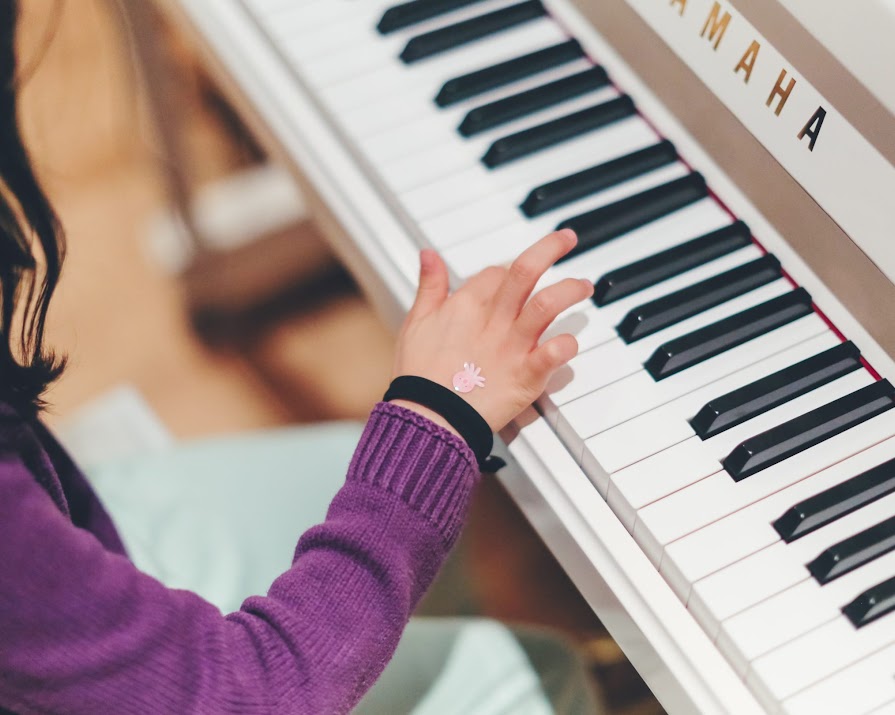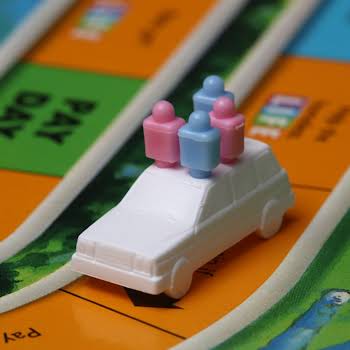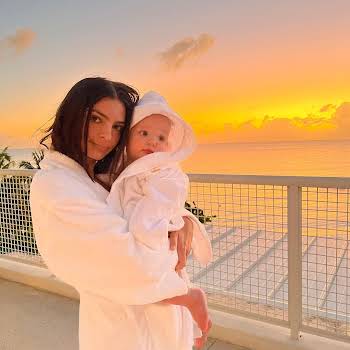
What is the best starter musical instrument for a child and what age should they start?
By Amanda Cassidy
18th Sep 2019
18th Sep 2019
Mastering an instrument isn’t easy, but the benefits to introducing music to your child are many.
My first introduction to the world of music was piano lessons from our octogenarian music teacher at my all-girls convent school at the age of seven.
She’d snooze beside me while I banged the keys. I went on to complete my exams but I’d fallen into the trap of learning the music off by heart rather than reading music.
But I loved being able to get the sound I wanted from an object like the piano. It was also the first time I felt good at something unique that not everyone could do. I may not have been able to do the splits but I could play a decent Adagio with my eyes closed.
Hitting the right note
Later I took up the violin to the dismay of my parents and joined the school orchestra, (mainly to get out of double maths). Music, although I liked it, still felt like a chore. It was only when singing did I ‘get’ how those notes can transport you, how to feel music and be moved by it.

I was keen for my own children to start learning an instrument. But where to start?
I didn’t want to push them into something they didn’t like, or make it seem like that chore I’d felt starting so young – a pressure to concentrate when all you wanted to do was make mud cakes with your pals out on the green.
Luckily for my daughter, that decision was taken out of our hands when her wonderful primary school introduced violin lessons as a pilot scheme for her entire year group. A few times a year, we now trudge into the school hall of her National school and hear our little darlings scratch their bow up and down their strings enthusiastically.
Their teacher is brilliant and she’s made it fun.
Instruments
More parents are now prioritising music lessons for their children than ever before. Perhaps as a nod to the theraputical effect music can have on young minds, or as a helping hand towards their Junior and Leaving Certificate exams where your instrument is a huge component (50%) towards the marks.
“If your child isn’t enjoying an instrument, try some taster lessons”.
Either way, owner of the Cassidy Academy of Music, Heather Cassidy says it is wonderful to see; “Through the years families have always prioritised music lessons for their children. Parents are reluctant sometimes even to put a holiday over piano lesson when it comes to finances. Parents would sometimes come to us and say one of them lost their job or they had a tough year so could they pay monthly rather than lose them completely.”
So how do you know what the best age for your child to start and what instrument should they kick off with? Heather says the younger the better but the priority is keeping them interested.
“We do a pre-instruental course (for children aged 3-5 years) which gives a good introduction to rhythm and pitch. We go through some good starter instruments, violin, recorder, piano and try introduce these to the children in the hope the child might say, I like x instrument or prefer y.
However, if a child hasn’t done this time of pre-instrumetal course, I’d say that 6 or 7 years of age is a better age to start because there is a lot to take in.”
Committment
What advice would you have for parents looking to start lessons. “If your child isn’t enjoying an instrument, try some taster lessons. Inquire at your local music school for a series of a few lessons initially to see if they like it. Sometimes children think it is one thing when in fact, it is another and the reality of hand position etc might put them off.”
“I’d also advise parents that once your child commits to an instrument, don’t let them give it up too easily. Give them a chance to get over the hurdle of the hard part, it is also a good lesson for their future. Try to meet the music teacher and don’t be afraid to switch and find a teacher that inspires them. A good teacher-student relationship is key.”
“Once your child commits to an instrument, don’t let them give it up too easily. Give them a chance to get over the hurdle of the hard part.”
The benefits of music for a child are huge. It’s using the part of their brain used to learn a second language, it involves maths skills and introduces them to a love of music, it also gives them a self-confidence when they can play something in front of a group.
Lifelong love
Chris Rooney started playing trombone at the age of 11 and has played everything from classical music to Jamaican ska since. In 2008, he completed his diploma in music teaching and performance at the Royal Irish Academy of Music and has regularly taught music since then. He now works with DabbledoMusic, which makes music more accessible for primary schools.
‘When you’re helping your child choose the instrument they’d like to learn, start by choosing one they like the sound of. Getting them listening to different types of instruments and styles of music will greatly help them decide what they like best.
Get them to consider things like whether they’d like to play as part of a group or on their own and also whether they’d like to sing songs while playing. Instruments like the ukulele, guitar or piano will allow them to play and sing at the same time.’
Chris says not to forget the goal of taking up an instrument. “If it’s a young child, consider the physicality of playing particular instruments. Learning the violin or clarinet are light and easy to hold, whereas some instruments like the trombone or double bass might be harder until they get a bit older.”
“But whatever instrument your child is starting, remember that the aim of learning about music and taking up an instrument is to develop a lifelong love of music that will help enrich your life and expand your horizons”.
Image via Unsplash.com
Read more: Meet the Irish composer whose music runs of Broadway
Read more: Can we thank Abba for the music, again?
Read more: The 5 torturous stages of bringing the kids swimming























